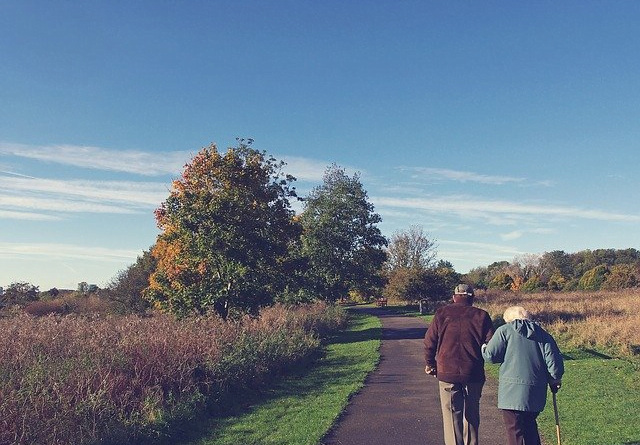Maintenance and Welfare of Parents and Senior Citizens Act 2007
Context:
The High Court of Karnataka has said that there is a complete failure on the part of the State government to comply with its statutory obligation of establishing old-age homes as per the provisions of the Maintenance and Welfare of Parents and Senior Citizens Act, 2007.
Contents
Maintenance and Welfare of Parents and Senior Citizens Act
Extent And Commencement
- This Act may be called the Maintenance and Welfare of Parents and Senior Citizens Act, 2007
- It extends to the whole of India except the State of Jammu and Kashmir, while Himachal Pradesh has its own Act for Senior Citizens. It applies also to citizens of India outside India.
- It shall come into force in a State on such date as the State Government may, by notification in the Official Gazelle, appoint.
Definitions
In this Act, unless the context otherwise requires –
- “children” includes son, daughter, grandson and grand-daughter but does not include a minor “maintenance” includes provision for food, clothing, residence and medical attendance and treatment “minor” means a person who, under the provisions of the Majority Act, 1875 is deemed not to have attained the age of majority
- “parent” means father or mother whether biological, adoptive or step father or step mother, as the case may be, whether or not the father or the mother is a senior citizen
- “prescribed” means prescribed by rules made by the Stale Government under this Act
- “property” means property of any kind, whether movable or immovable, ancestral or self acquired, tangible or intangible and includes rights or interests in such property
- “relative” means any legal heir of the childless senior citizen who is not a minor and is in possession of or would inherit his property after his death
- “senior citizen” means any person being a citizen of India, who has attained the age of sixty years or above
- “State Government”;, in relation to a Union territory, means the administrator thereof appointed under article 239 of ihc Constitution
- “Tribunal” means the Maintenance Tribunal constituted under section 7
- “welfare” means provision for food, health care, recreation centres and other amenities necessary for the senior citizens
Maintenance of Parents and Senior Citizens
- A senior citizen including parent who is unable to maintain himself from his own earning or property owned by him, shall be entitled to make an application under section 5 in case of –
- Parent or grand-parent, against one or more of his children not being a minor
- A childless senior citizen, against such of his relative referred to in clause (g) of section 2
- The obligation of the children or relative, as the case may be, to maintain a senior citizen extends to the needs of such citizen so that senior citizen may lead a normal life.
- The obligation of the children to maintain his or her parent extends to the needs of such parent either father or mother or both, as the case may be, so that such parent may lead a normal life.
- Any person being a relative of a senior citizen and having sufficient means shall maintain such senior citizen provided he is in possession of the property of such senior citizen or he would inherit the property of such senior citizen:
Provided that where more than one relatives are entitled to inherit the property of a senior citizen, the maintenance shall be payable by such relative in the proportion in which they would inherit his property.
Jurisdiction and Procedure
- The proceedings under section 5 may be taken against any children or relative in any district –
- where he resides or last resided, or
- where children or relative resides.
- On receipt of the application under section 5, the Tribunal shall issue a process for procuring the presence of children or relative against whom the application is filed.
- For securing the attendance of children or relative the Tribunal shall have the power of a Judicial Magistrate of first class as provided under the Code of Criminal Procedure, 1973.
- All evidence to such proceedings shall be taken in the presence of the children or relative against whom an order for payment of maintenance is proposed to be made, and shall be recorded in the manner prescribed for summons cases: Provided that if the Tribunal is satisfied that the children or relative against whom an order for payment of maintenance is proposed to be made is wilfully avoiding service, or wilfully neglecting to attend the Tribunal, the Tribunal may proceed to hear and determine the case ex parte
- Where the children or relative is residing out of India, the summons shall be served by the Tribunal through such authority, as the Central Government may by notification in the official Gazette, specify in this behalf.
- The Tribunal before hearing an application under section 5 may,. refer the same to a Conciliation Officer and such Conciliation Officer shall submit his findings within one month and if amicable settlement has been arrived at, the Tribunal shall pass an order to that effect.
Explanation – For the purposes of this sub-section “Conciliation Officer” means any person or representative of an organisation referred to in Explanation to sub-section(1) of section 5 or the Maintenance Officers designated by the State Government under subsection (1) of section 18 or any other person nominated by the Tribunal for this purpose.
Power of State Government to make rules
- The State Government may, by notification in the Official Gazette, make rules for carrying out the purposes of this Act.
- Without prejudice to the generality of the foregoing power, such rules may provide for –
- The manner of holding inquiry under section 5 subject to such rules as may be prescribed under sub-section (1) of section 8;
- The power and procedure of the Tribunal for other purposes under subsection (2) of section 8.
- The maximum maintenance allowance which may be ordered by the Tribunal under sub-section (2) of section 9;
- The scheme for management of old age homes, including the standards and various types of services to be provided by them which are necessary for medical care and means of entertainment to the inhabitants of such homes under sub-section {2) of section 19;
- The powers and duties of the authorities for implementing the provisions of this Act. under sub-section (1) of section 22;
- A comprehensive action plan for providing protection of life and property of senior citizens under sub-section (2) of section 22;
- Any other matter which is to be, or may be, prescribed
- Every rule made under this Act shall be laid, as soon as may be after it is made, before each House of State Legislature, where it consists of two Houses or where such legislature consists of one House, before that House.
COPY OF ACT
Source: The Hindu
Discover more from Simplified UPSC
Subscribe to get the latest posts sent to your email.



